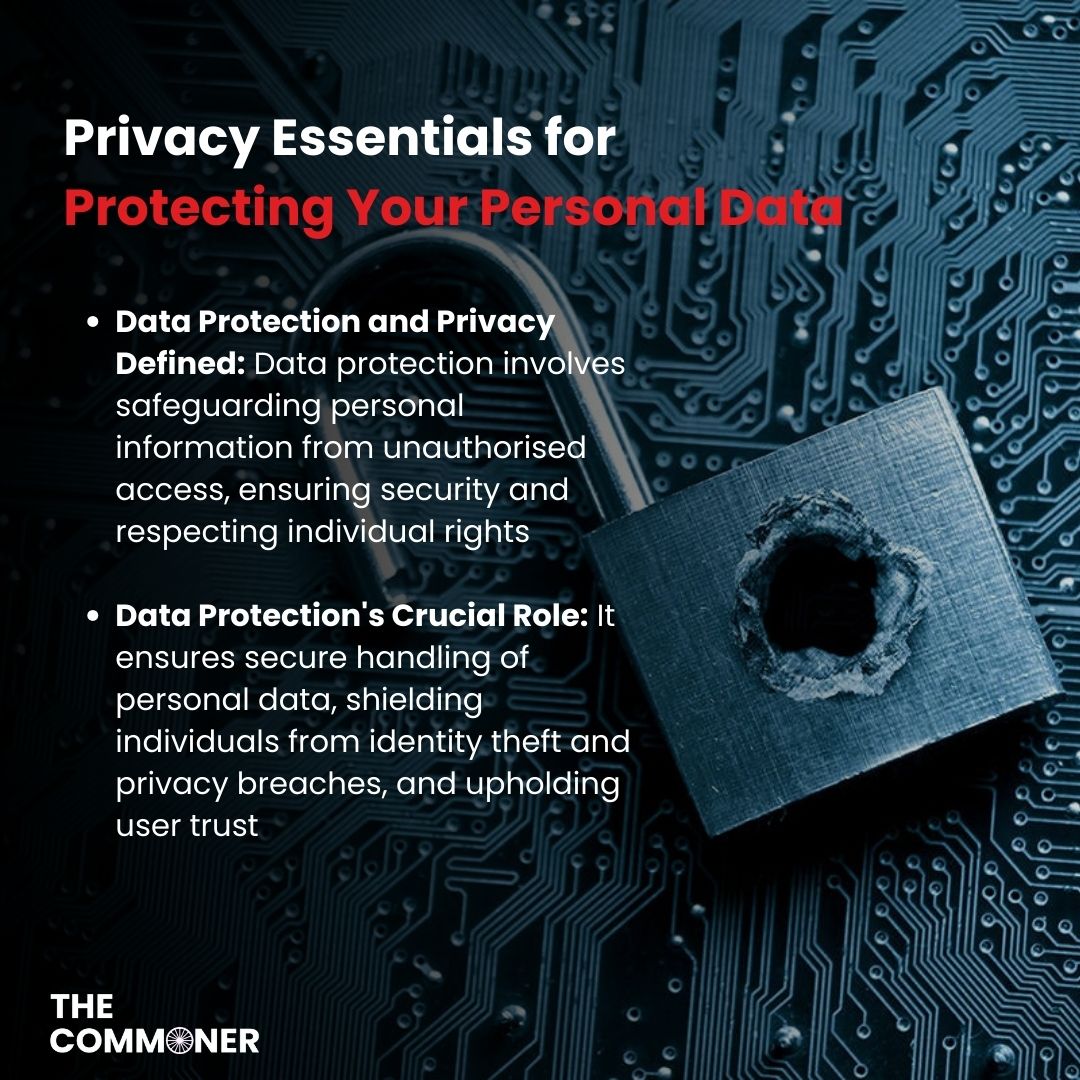Data Privacy In The Digital Age: How Much Do We Really Own Our Data?

Data Protection and Privacy
Source: AWS
In today’s interconnected world, the digital landscape is evolving at a rapid pace, ushering in an era where data has become the new currency. With the proliferation of online platforms, social media, and Internet of Things (IoT) devices, concerns over data privacy have escalated, prompting a critical examination of who truly owns our personal information and the extent of control wielded by tech companies.
Understanding Data Protection and Privacy
Data protection and privacy encompass the measures and regulations aimed at safeguarding individuals’ personal information from unauthorized access, use, and exploitation. It involves the right of individuals to control the collection, storage, and dissemination of their data.
These protections are increasingly important given the growing concerns over data privacy. The International Association of Privacy Professionals (IAPP) reports that 68% of consumers worldwide are either concerned or very concerned about their privacy on the Internet. Moreover, 67% have refrained from making online purchases due to privacy reasons.

Types of Data Privacy Concerns
Identity Theft is one of the most prevalent concerns. Unauthorized access to personal information can lead to identity theft, resulting in financial losses and reputational damage. This is exacerbated by the surveillance and tracking of online activities, which raises concerns about privacy infringement and erosion of civil liberties.
Furthermore, instances of data breaches compromise sensitive information, exposing individuals to the risk of fraud and exploitation. The aggregation and analysis of personal data for targeted advertising and profiling purposes raise ethical and privacy concerns regarding individual autonomy and consent.
Tech Companies' Control Over Personal Information
Tech giants wield considerable control over personal information, leveraging data for targeted advertising, product personalization, and algorithmic decision-making. The opaque nature of data collection practices and the lack of transparency regarding data usage further compound these concerns, leaving individuals with little control over their own digital footprint.

Big tech companies abused their market position – US antitrust subcommittee report
Source: GadgetMatch
Real-life Consequences of Data Privacy Breaches and Exploitation by Cybercriminals
Instances of data privacy breaches have real-life consequences, ranging from financial losses to reputational damage and even threats to personal safety. High-profile cases such as the Cambridge Analytica scandal underscore the far-reaching implications of unchecked data exploitation. Furthermore, cybercriminals exploit vulnerabilities in data privacy frameworks to perpetrate identity theft, financial fraud, and cyber espionage.

Future Challenges and Solutions
Looking ahead, the trajectory of data privacy hinges on policymakers’ ability to enact robust regulations that balance innovation with consumer protection. Stricter enforcement of data protection laws, enhanced transparency measures, and empowering individuals with greater control over their data are imperative steps towards addressing these challenges.
Conclusion
In conclusion, the discourse surrounding data privacy in the digital age underscores the need for a paradigm shift in how we conceptualize and regulate personal information. By fostering a culture of transparency, accountability, and user empowerment, companies can not only mitigate data privacy risks but also capitalize on privacy-centric practices as a competitive advantage in today’s digital marketplace. Failure to prioritize data privacy not only jeopardizes consumer trust but also exposes companies to regulatory scrutiny and reputational damage.

